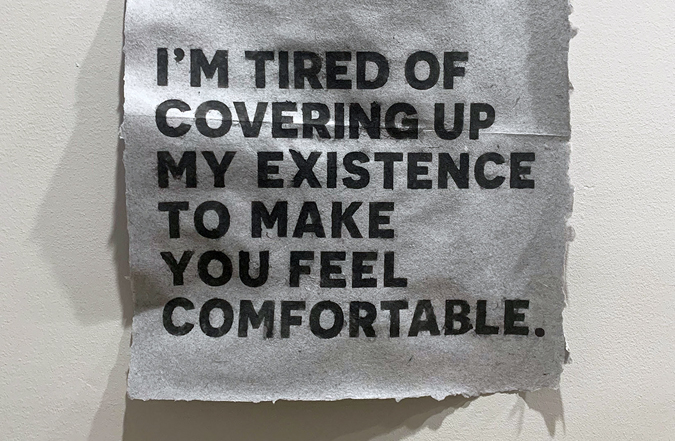
DISCUSSION QUESTIONS
1 Understanding Context
• When was the first time you were aware of race?
• How do you define race? What is your racial-identity?
• How does your family define race?
• How do people in your country (from your culture) define race? Is it different from other countries or cultures?
• What influences your and others' understanding of racial issues in your home country?
• Do you feel comfortable participating in or tend to avoid conversations about race? Why?
2 Ways of Engaging with Race
• What’s a resource that has helped you learn more about race?
Have you ever hurt someone or been hurt by others when discussing race? Why?
• What word(s) makes you hurt or uncomfortable when you hear them in the conversation? Have you had an experience when your intent was good but your actions or words inadvertently caused hurt?
• What do you think are the aspects of an effective apology?
• Why is it not the responsibility of the person who was hurt to explain why he/she/they felt that way?
3 Understanding Heritage of Racism in the U.S.
• How are the histories of anti-Black racism and anti-Asian racism in the U.S. similar? Different
• How does an understanding of settler colonialism³ complicate the ideal of the U.S. as a country of immigrants?
• If you were born outside of the U.S., does your country have a history of colonization that is similar in some ways here?
• What are the messages that your country transmits about racial superiority and inferiority
• What is the role of the press in your understanding of racial inequality? How has racism been used as a tool to separate minorities in the U.S.?
• Do you have examples of ways in which black and Asian people or other BIPOC individuals have worked together in your home country?
4 Racism Today
• After reading the articles, what new insights do you have that help you understand anti-Black and anti-Asian racism?
• How do you respond when you know someone has a different perspective from you about these events?
5 Conclusion
• Is it more effective to ignore differences and focus on how we are similar? If I hear something that is just wrong in my perspective, how should I respond?
• Why do I need to understand people who have different perspectives and cultures? In what ways are discussions of race that you’re hearing harmful? Beneficial?
1 Understanding Context
• When was the first time you were aware of race?
• How do you define race? What is your racial-identity?
• How does your family define race?
• How do people in your country (from your culture) define race? Is it different from other countries or cultures?
• What influences your and others' understanding of racial issues in your home country?
• Do you feel comfortable participating in or tend to avoid conversations about race? Why?
2 Ways of Engaging with Race
• What’s a resource that has helped you learn more about race?
Have you ever hurt someone or been hurt by others when discussing race? Why?
• What word(s) makes you hurt or uncomfortable when you hear them in the conversation? Have you had an experience when your intent was good but your actions or words inadvertently caused hurt?
• What do you think are the aspects of an effective apology?
• Why is it not the responsibility of the person who was hurt to explain why he/she/they felt that way?
3 Understanding Heritage of Racism in the U.S.
• How are the histories of anti-Black racism and anti-Asian racism in the U.S. similar? Different
• How does an understanding of settler colonialism³ complicate the ideal of the U.S. as a country of immigrants?
• If you were born outside of the U.S., does your country have a history of colonization that is similar in some ways here?
• What are the messages that your country transmits about racial superiority and inferiority
• What is the role of the press in your understanding of racial inequality? How has racism been used as a tool to separate minorities in the U.S.?
• Do you have examples of ways in which black and Asian people or other BIPOC individuals have worked together in your home country?
4 Racism Today
• After reading the articles, what new insights do you have that help you understand anti-Black and anti-Asian racism?
• How do you respond when you know someone has a different perspective from you about these events?
5 Conclusion
• Is it more effective to ignore differences and focus on how we are similar? If I hear something that is just wrong in my perspective, how should I respond?
• Why do I need to understand people who have different perspectives and cultures? In what ways are discussions of race that you’re hearing harmful? Beneficial?
